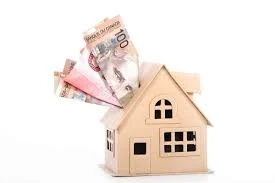Mortgage, a very common word in our daily lives, but few really know what it is or what it can refer to. Normally we define it as money that a financial institution lends to purchase a product such as a home, vehicle, garage space... But it is not alone here, because there are different types of mortgages, and sometimes it is even the mortgage itself. bank who pays the beneficiary an amount of money and not the other way around. This is what is known as a reverse mortgage or reverse mortgage.
But, what exactly does it consist of, what conditions and what requirements does it have? Not everyone can access them. Keep reading, and we will tell you all the details.
What is the reverse mortgage?
The Bank of Spain defines a reverse mortgage as: “a type of mortgage loan aimed at people over 65 or dependents who own a home. Contrary to the conventional mortgage, it is the owner who receives an amount from the bank in exchange for the apartment (usually in the form of monthly rent). In addition to not losing ownership of your home, you will be able to continue using it until your death.”
In other words, it is a financial operation with which there is the possibility of converting the equity value that home ownership represents into money. An asset such as a flat is converted into a financial or life income and many people do it to complete their retirement pension.
But, unlike a conventional mortgage, the debt does not decrease over time, but increases, in such a way that the more years you live, the more the applicable interest rate increases each year. That is why age is a determining factor for this type of mortgage.
The mortgaged person can continue using the home and can cancel the mortgage if they wish, for example, by selling the property.
Requirements to be able to acquire it
As we have seen, this type of mortgage cannot be accessed by everyone, since there are special requirements to be able to subscribe it:
Being in possession of a homeBeing over 65 years old.Being under 65 years of age and a recognized disability of a degree equal to or greater than 33%.People who are in a situation of serious dependency or great dependency.The amount of the credit may not exceed the appraised value of the home. For this, it has to be appraised by an official appraisal company.
It can be contracted with a credit institution or with insurance companies authorized to operate in Spain.
Apart from these requirements, it may interest you to know that signing a mortgage of this type is not incompatible with renting the home if desired, it may even already be leased at the time of requesting it. This option allows the client to obtain rental income in addition to what they already obtain from the reverse mortgage.
In addition, it can be combined with an annuity insurance. Thus, if the person lives more years than those covered by the monthly payments for this mortgage, he does not stop receiving the amounts.
Do you have tax benefits?
In addition, this type of mortgage has tax benefits. The most important is the one referring to Personal Income Tax (IRPF). In this sense, the monthly payments (or the single payment) received for this financial product are not required to pay said tax. Therefore, of the amount you receive, you will not have to pay your income tax at all.
Can a reverse mortgage expire early?
Let us remember that a clause of this type in a mortgage contract is one by which the financial institution can execute the mortgage loan if certain circumstances occur.
In these loans, if the owner decides to transfer the home (donate it or sell it, for example), the bank will have the right to demand the amount owed plus interest.
Because this type of loan is directly associated with a person with specific characteristics (age and life expectancy), it is not possible to subrogate it to a person with other circumstances.
When the beneficiary dies, is the reverse mortgage inherited?
Ownership of the home is retained by the reverse mortgage customer until his or her death. When this happens, or in the event that there is more than one beneficiary and the last one dies, several situations can arise, since the heirs of the property would inherit it with the debt subscribed:
The heirs can settle the debt with the financial institution by canceling the mortgage loan entirely with their own funds. In this case they have to pay both the amount received by the deceased and the interest.
They can also cancel it by acquiring another credit to cover said debt.In the third case, the heirs can sell the house and thus satisfy the debt contracted.In no case may the entity with which the reverse mortgage was signed charge the heirs any type of expense or commission for canceling the debt.Who assumes the formalization expenses in a reverse mortgage?
As a result of the publication of the new Mortgage Law, who is in charge of covering each mortgage expense is strictly assessed. However, previously these expenses have been borne in most cases by the consumers who signed the loan.
As the courts have declared, part of these expenses are claimable. At reclamador.es we put at your disposal a solid team of lawyers who are experts in bank claims who will help and accompany you throughout the process.


